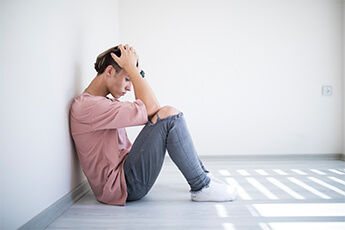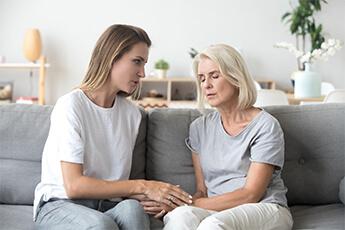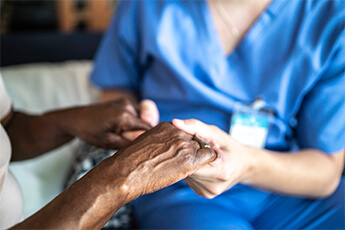6 tips to improve mental health during a pandemic
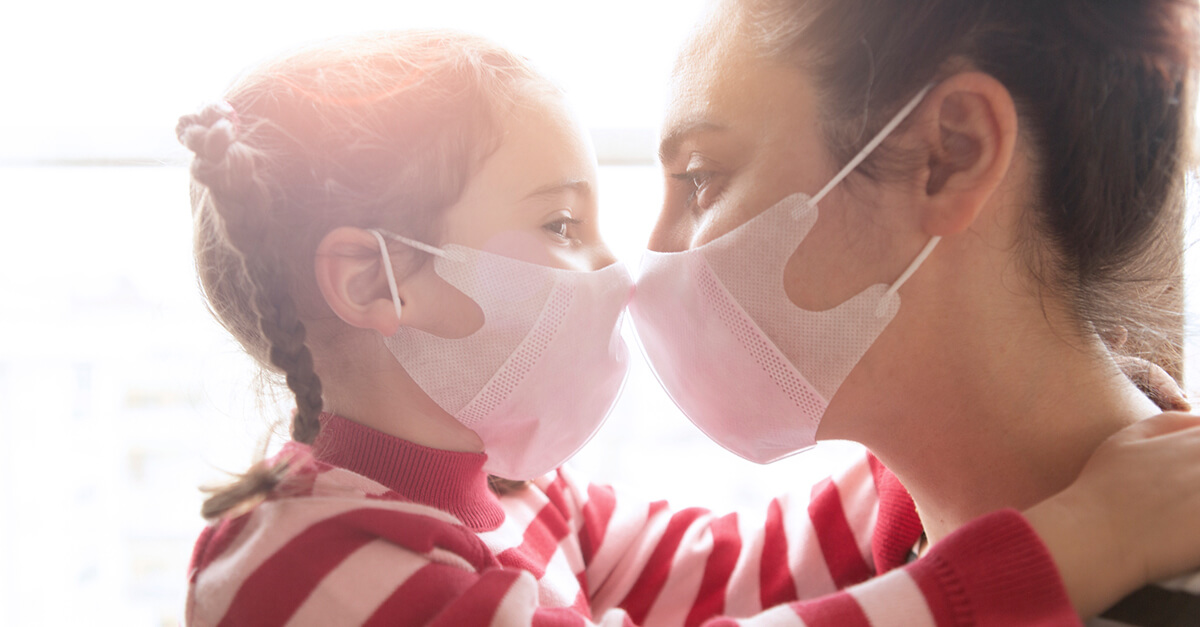
The changes brought on by the COVID-19 pandemic have been challenging for everyone. Fears about the virus, combined with the necessary isolation from family and friends, have caused an increase in depression, anxiety, and other mental health problems across the nation and world.
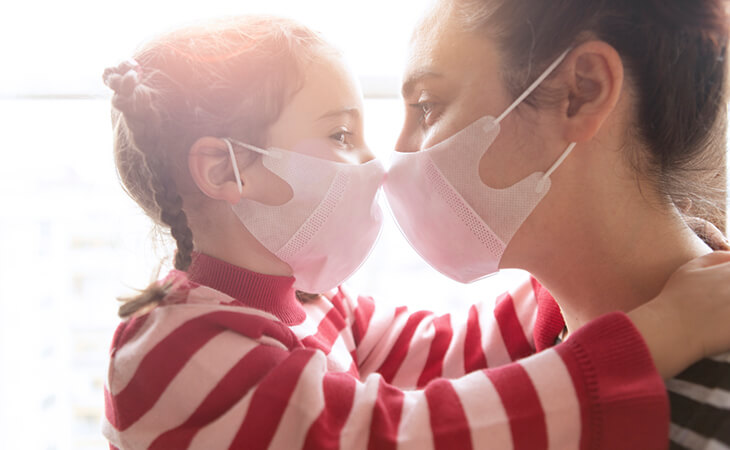
How has the COVID-19 pandemic affected mental health?
Toward the end of 2020, the first year of the pandemic, a worldwide study showed that more than half of survey respondents experienced some degree of anxiety, depression, or post-traumatic stress disorder (PTSD) that they attributed to the pandemic. Nearly 8 out of 10 survey respondents said they felt stressed about the pandemic, while 1 in 3 was psychologically distressed.
How can I improve my mental health during the pandemic?
If you were already managing a mental disorder like anxiety or depression, you may find that the worry and isolation brought on by the pandemic make that condition worse. It’s also possible that the pandemic is bringing on these feelings for the first time.
Regardless of the situation, these tips can help you cope:
establish a routine
be a better sleeper
get active
find healthy ways to unwind
connect (safely) with others
seek mental health support
Establish a routine
Working from home, managing your child’s schooling, or dealing with a partner who’s now at home 24/7 can disrupt the normal pace of your day. While some changes are out of your control, you do have a say in how the day flows. Stick to a schedule for getting out of bed, eating meals, going back to bed, and what happens in between. Most people feel better when they know what to expect out of the day. The predictability can help you regain a sense of control.
Be a better sleeper
A Kaiser Family Foundation study found that more than 1 in 3 adults struggle to sleep since the pandemic started. Like your days, your nights benefit from a routine. It may be tempting to sleep later or take a daytime nap after a fitful night’s rest. But experts at the American Academy of Sleep Medicine (AASM) say you’ll sleep better when you consistently go to bed and get up at the same time, even on weekends.
The AASM recommends that adults get seven hours of sleep every night. To catch more z’s, you can:
banish all electronic devices from the bedroom (even smartphones)
turn your bedroom into a dark, quiet, cool sanctuary
start a bedtime ritual like meditation, a warm bath, or reading a book
Get active
Exercise boosts endorphins, the hormones that make you feel good. Physical activity also helps work off some stress. Taking a walk outside (while wearing a mask and social distancing, of course) is a good way to exercise and breathe in some fresh air. If the weather is bad, and you don’t feel comfortable going to a gym, many fitness organizations offer free exercise videos online.
Find healthy ways to unwind
In addition to exercise videos, some companies are now offering free meditation and mindfulness exercises online or via smartphone apps. You can also try an online yoga session or deep breathing exercises. According to the National Center for Complementary and Integrative Health, relaxation practices like meditation can lower blood pressure, reduce anxiety and depression, and help you sleep better.
Other healthy ways to unwind include enjoying a hobby like gardening or working on puzzles, taking a warm bath, or listening to music. Try to avoid turning to alcohol or other substances. While you might think they help, these substances act as depressants and can bring your mood down more.
Connect (safely) with others
Perhaps one positive thing to come from reduced in-person socialization is the widespread use of video technology to connect with others. Workplaces aren’t the only ones using services like Zoom. You can tap that same technology to chat with loved ones across the country, have a book club with neighbors, and participate in celebratory events like graduations.
Of course, the old technology — the phone — also works. The important thing is to reach out and stay connected. You might think you’re burdening someone by calling when you’re feeling down. But you might find that the person you’re calling needed a pick-me-up, too.
In addition, you can make and find connections through online groups like the Mental Health America support group and discussion community on Inspire. These community members understand the challenges of managing a mental health issue, especially during uncertain times.
Seek mental health support
More people are seeking the help of mental health and addiction counselors during these trying times, according to the National Council for Behavioral Health. These professionals can help when you’re feeling overwhelmed, fearful, or depressed. Many counselors are offering telehealth sessions, which makes access to services easier.
If you’re not sure where to turn to for help, your primary care physician can be a good first step. You can also call these organizations for help:
National Alliance on Mental Illness (NAMI) HelpLine: 1-800-950-NAMI (6264)
Substance Abuse and Mental Health Services Administration (SAMHSA) helpline: 1-800-662-HELP (4357)
From the community: “I am a very self-aware person and recognize that the COVID pandemic has put my anxiety and lack of control over this all at the forefront of most of my thoughts. It feels like I am on a rollercoaster - some days at the top of the hill and feel totally fine and even happy with some things quarantine has given me (more time with my daughter and husband etc), but some days I’m speeding down the incline to a low point. Where a small sore throat or sniffle spins me to thinking I caught COVID... I take my temperature 5-10 times a day! Anyone else finding COVID extremely hard on the mental health issues they work so hard to cope with on a regular day? I feel guilt about getting sick and then getting my parents or daughter sick and that makes me spiral even more!” – Inspire member
Sources
Healthy sleep habits. American Academy of Sleep Medicine. February 2017.
Coping with stress. Centers for Disease Control and Prevention. January 2021.
The truth about alcohol. Foundation for a Drug-Free World.
Coronavirus anxiety: Coping with stress, fear, and worry. HelpGuide.org. August 2020.
Impact of COVID-19 pandemic on mental health in the general population: A systemic review. Journal of Affective Disorders. December 2020.
The implications of COVID-19 for mental health and substance abuse. Kaiser Family Foundation. February 2021.
COVID-19 and your mental health. Mayo Clinic. October 2020.
Demand for mental health and addiction services increasing as COVID-19 pandemic continues to threaten availability of treatment options. National Council on Behavioral Health. September 2020.
Disclaimer
Member comments are lightly edited for length and to remove identifying information but are otherwise reproduced as they appear in the community as part of public posts.
This content is for general informational purposes only and does not necessarily reflect the views and opinions of any organization or individual. The content should not be used as a substitute for professional medical advice, diagnosis, or treatment. Please consult your healthcare provider about any questions you may have regarding a medical condition.


